
Are you considering tooth crowns to improve your smile?
Take a look at our before and after photos to see the amazing transformation that our patients have achieved with tooth crowns. As you can see, tooth crowns can make a big difference in the appearance of your smile.- depending on expectations Contact us today to schedule a consultation! We would be happy to discuss our dental crown options with you.
Porcelain Crowns - Before and After Pictures
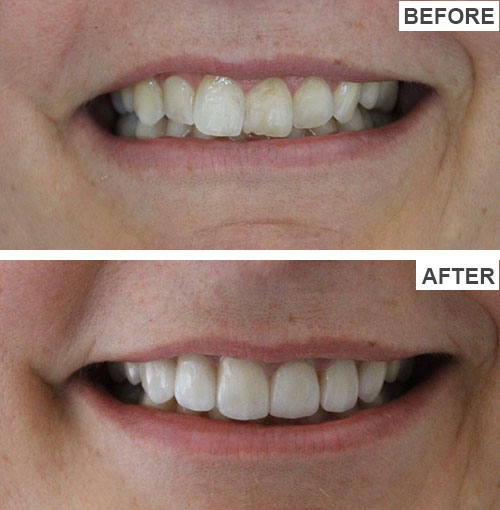
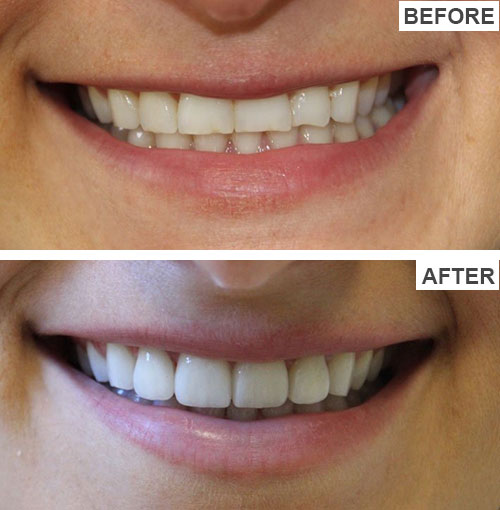
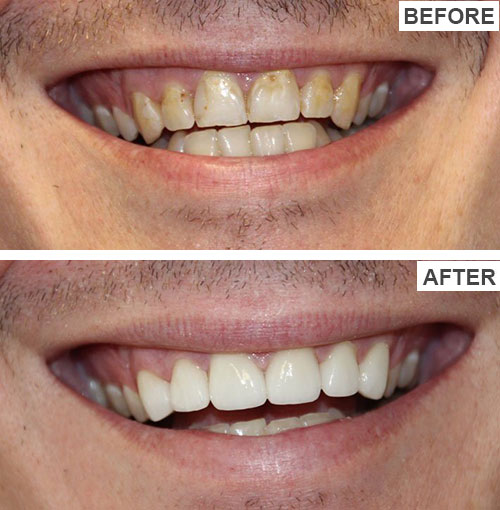
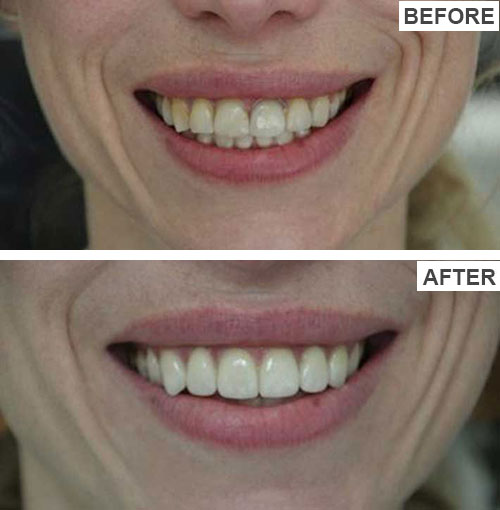
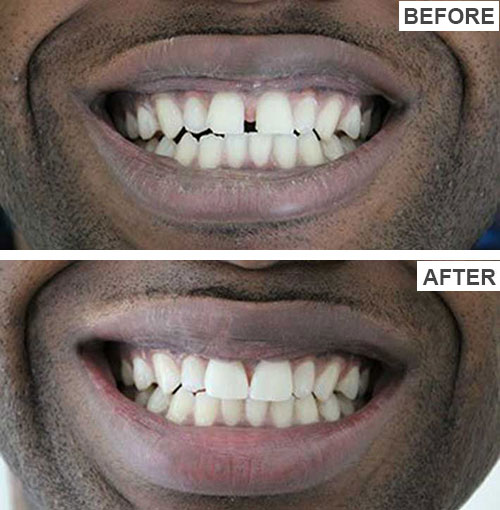
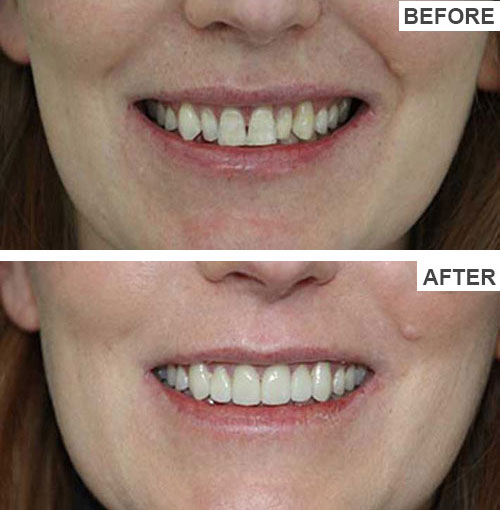
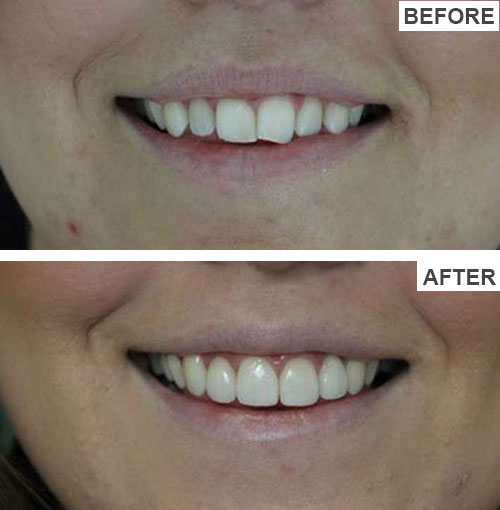
Porcelain Crowns - Before and After Pictures
Things to Know Before You Get Dental Crowns
1. Not all tooth decay requires the need for a tooth crown.
If the tooth decay is caught early, a filling may be all that is needed to restore the tooth.
2. Getting a filling today does not rule out the need for a tooth crown in the future.
The tooth may develop new decay or the old filling may fail, requiring a tooth crown.
3. A tooth crown will not prevent new decay from forming.
It is important to continue to brush and floss your teeth and see your dentist regularly for cleanings and exams.
4. There are different types of dental crowns.
The type of dental crown you receive will be based on several factors, including the location of the tooth, the amount of tooth that is visible above the gum line, and your bite.
5. Dental crowns can be made from different materials.
The most common type of dental crown is made from porcelain-fused-to-metal. Other materials used for dental crowns include all-ceramic and all-metal.
6. Dental crowns are not just for adults.
Children may also need dental crowns to protect their teeth from decay.
7. Dental crowns are not just for your teeth.
They can also be used to support a dental bridge or to cover a dental implant.So if you are considering dental crowns, be sure to ask one of our experienced dentists about all of your options. And be sure to take care of your teeth so you can avoid the need for dental crowns in the future!
Things to Know After You Get Dental Crowns
1. Dental crowns may require special care.
Be sure to brush and floss your teeth as directed by your dentist.
2. See your dentist for regular cleanings and exams.
It is important to see your dentist every 6 months for a cleaning and exam. This will help to ensure that your dental crowns are in good condition and that your teeth and gums are healthy.
3. Dental crowns may make it difficult to floss between your teeth.
It is important to floss around the base of the dental crowns to avoid plaque and bacteria build-up. Your dentist can show you the proper way to floss around your dental crowns.
4. Avoid biting down on hard objects.
Dental crowns are made to withstand a lot of wear and tear, but they are not indestructible. Biting down on hard objects, such as ice or hard candy, can crack or break your dental crowns.
5. Be mindful of what you eat and drink.
Certain foods and drinks, such as coffee and red wine, can stain your dental crowns. To avoid staining, brush your teeth after eating or drinking.
6. Avoid eating sticky or chewy foods.
Sticky and chewy foods can pull your dental crowns off. If you must eat these types of foods, be sure to brush your teeth afterwards.
7. Use a soft toothbrush to brush your teeth.
A soft toothbrush will help to avoid scratching or damaging your dental crowns.
8. Avoid using whitening toothpaste.
Whitening toothpaste can damage your dental crowns and make them more susceptible to staining.
9. Dental crowns will not change the colour of your teeth.
If you are concerned about the colour of your teeth, you may want to consider getting veneers instead.
10. Dental crowns may make your teeth feel sensitive.
This is normal and should go away after a few days. If the sensitivity persists, please contact your dentist.
11. Dental crowns are not permanent.
They will eventually need to be replaced. The average lifespan of a dental crown is 5 to 15 years. Our Dental Crown Testimonialsif you are now interested in getting dental crowns, be sure to contact us by scheduling an appointment online. We will be happy to help you!

